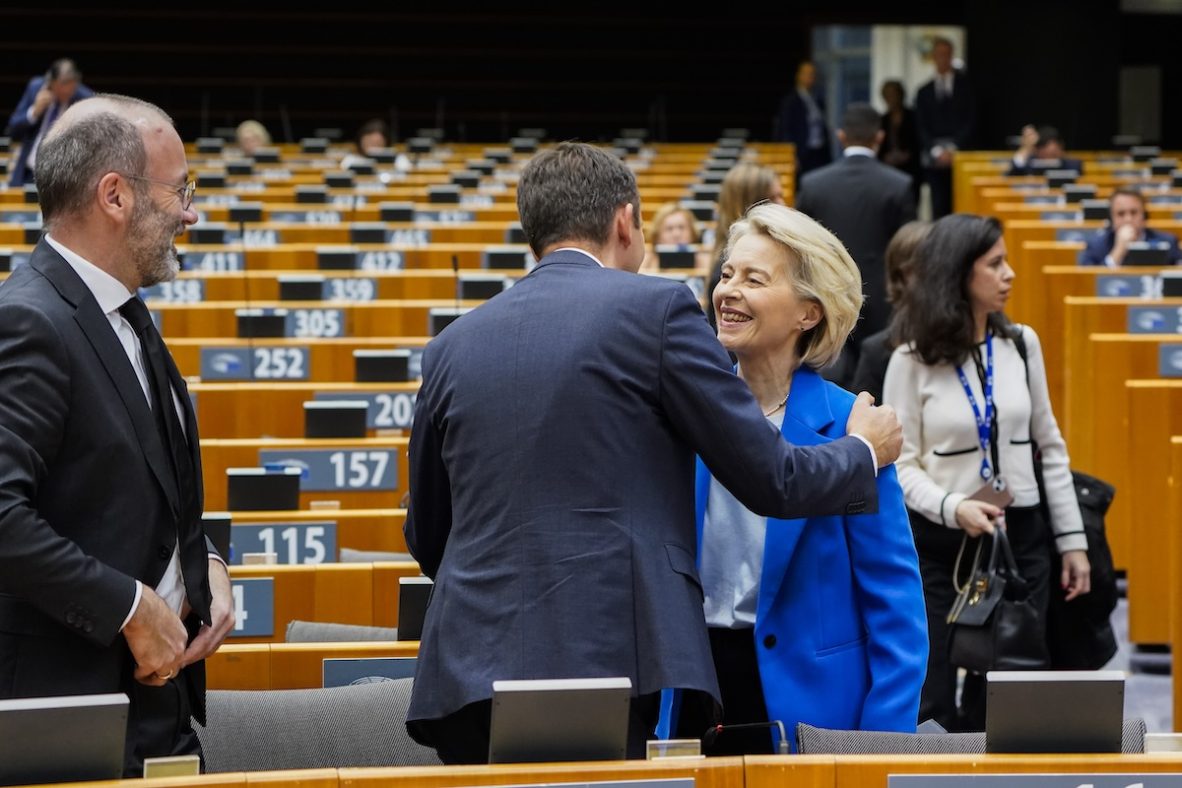The digital euro: Everything you always wanted to know but were afraid to ask
Isn’t the euro already digital whenever we tap a card or transfer money online?

For those unfamiliar with the concept, the digital euro is likely to induce severe bewilderment – or a shrug. Isn’t a digital euro simply any euro that isn’t physical cash? And, if so, don’t we already use digital euros whenever I use my bank card?
In fact, the answer to both questions is ‘no’. The digital euro is not any euro that doesn’t take the form of coins or banknotes, and it doesn’t already exist.
Many European officials, however, wish that it did. Indeed, the topic is being debated with increasing urgency – and frequency – by EU policymakers. Eurozone finance ministers will discuss the matter in Luxembourg on Thursday, and MEPs argued over it Strasbourg on Wednesday.
Moreover, the European Central Bank (ECB) is currently just three months away from completing a two-year “preparation phase” ahead of the digital euro’s potential launch in a few years’ time.
So, what is the digital euro? Why is it being discussed so much? And is it actually a good idea?
The basic concept
Although the digital euro’s precise properties remain undefined, the core idea is to have a digital payment method that is as close as possible to cash.
In particular, the digital euro would, like cash, be issued and fully guaranteed by the ECB. This contrasts with ‘digital’ money in your commercial bank or cryptocurrency account. If your bank were to fail, you could lose all your savings above €100,000. Deposits in the EU are generally insured up to €100,000.
“The digital euro is ‘digital cash’, in the sense that it will always be honoured by the ECB,” said Maria Demertzis, who leads the Economy Strategy and Finance Centre for Europe at the think-tank The Conference Board. “This is not always true for other ‘digital’ types of money.”
Moreover, like cash, all European citizens and residents would theoretically have access to the digital euro, including people whose credit or employment history bars them from opening a normal bank account.
People would also be able to spend the money in their ‘digital wallet’ on anything cash can be spent on, from coffee to cinema tickets, via their smartphone, tablet, or watch. Contrary to the claims of right-wing conspiracy theorists, the digital euro would not replace cash as a form of payment.
“The intent is to have something that would add to the panoply of payment options,” said Nicolas Véron, senior fellow at Bruegel and the Peterson Institute for International Economics. “It would not be compulsory.”
Why are people saying we need it?
For two main reasons. First, declining cash use. According to ING, a Dutch bank, the proportion of in-shop transactions made with cash in the eurozone fell from 79% to 52% from 2016 to 2024, while the share of card payments rose from 19% to 39%.
The move away from cash could, according to the ECB, increase financial instability as coins and banknotes shed their role as the single currency area’s “monetary anchor.”
“The ECB’s original argument is that we’re moving into a digital world,” said Demertzis. “Therefore, they argue, we need to have a digital equivalent of what we run to when we get into trouble. In the past, we ran to cash. What do we run to in a digital world?”
The second – and increasingly prevalent – argument for the digital euro is geopolitical.
Digital payment transactions in the eurozone are dominated by US-based providers, particularly Visa and Mastercard. The digital euro, on the other hand, would use European payment infrastructure, thus reducing the EU’s reliance on its increasingly unreliable transatlantic partner.
“I think the geopolitical motivation is the more visible one at this point,” said Véron. “This was not the case two years ago – and this has become increasingly clear in the past twelve months.”
What are the roadblocks?
There are two. The first is privacy. Above all, many argue that digital euro payments won’t protect citizens’ anonymity as effectively as regular cash transactions do.
To address these worries, the ECB has proposed “online” and “offline” digital euro services. The “offline” version would, it claims, “offer users a cash-like level of privacy.” Some officials and analysts have also suggested a “scaling” system, whereby users are afforded greater anonymity for smaller transactions.
The second, and likely more serious concern, is the potential risk to the euro area’s financial stability.
In particular, some fear that citizens’ transfer of money from their savings accounts to their digital wallets could cause banks to haemorrhage capital. This could harm banks’ ability to hand out loans or – in the worst-case scenario – render them insolvent.
In response, the ECB has proposed capping the digital wallet at €3,000: large enough for people to want to use the digital euro, but small enough to limit any harm to the financial system.
ECB officials also argue that the risk of bank losses would be further reduced by the fact that the digital euro would – like cash, but unlike savings deposits – not generate any returns.
The so-called ‘reverse waterfall’ mechanism, whereby digital wallet payments exceeding the €3,000 holding limit would be automatically drawn from citizens’ bank accounts, would further discourage the digital euro’s widespread use, they argue.
“The combination of the reverse waterfall, a holding limit, and no remuneration will strongly reduce incentives to keep money in a digital euro wallet,” ECB officials wrote last year.
Analysts are broadly split on whether such moves would be effective. Some also argue that there is a deep tension between the ECB’s desire to launch the digital euro while simultaneously discouraging its adoption.
Véron, however, noted that geopolitical concerns could justify the digital euro’s introduction, even if its uptake remains limited.
“If you see the digital euro as a kind of geopolitical spare tire – as something that could be useful in some scenarios, but not in a baseline scenario – it’s not clear that it’s a failure, even if there isn’t much use in the baseline scenario,” he said.
(mm)



